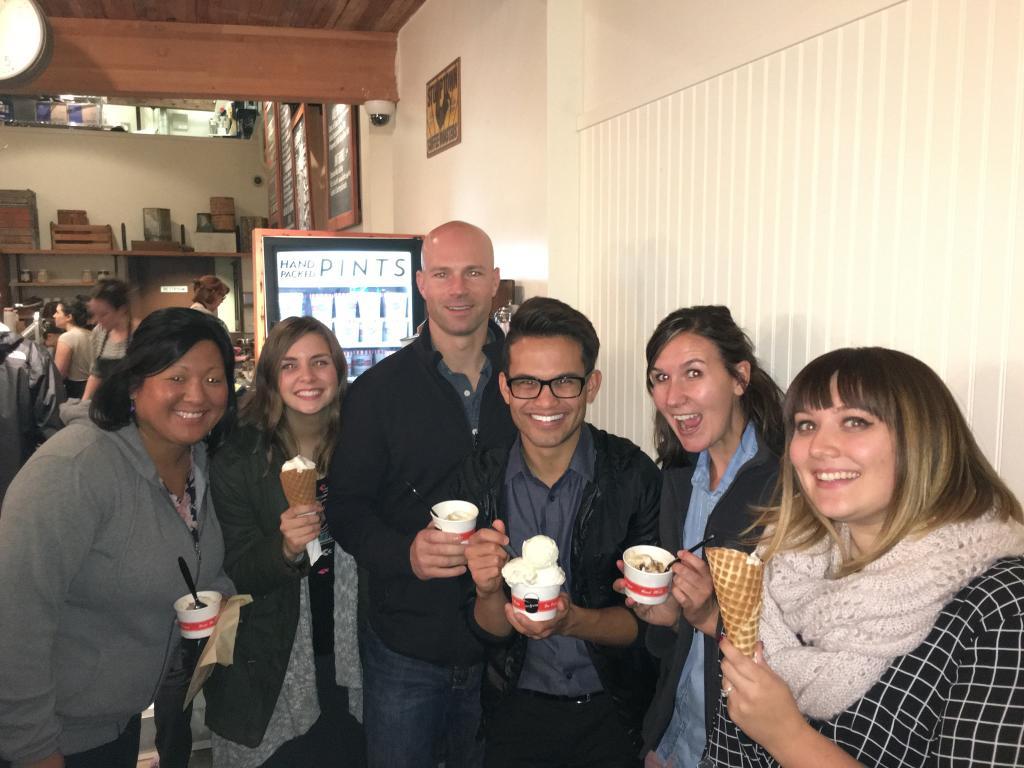
Kaitlyn Frandsen began working as a research assistant for professor Ryan Kellems during her freshman year. Since then, they’ve attended two research conferences together in the past four years — one in Portland, Oregon, and one in Myrtle Beach, South Carolina. Frandsen is a senior studying special education.
“He’s a professor, but he is also a mentor,” Frandsen said. “He’s probably my biggest advocate in the field of education.”
Students who connect with professors outside of class said they often develop meaningful educational relationships. These relationships benefit them throughout their college careers.
Frandsen said she often communicates with Kellems outside of school. They exchange Christmas presents every year, she sometimes babysits his children and she feels comfortable calling or texting him if she has a problem. They are friends, she said, as well as professional colleagues.
Kellems encouraged her to apply for programs and jobs she otherwise wouldn’t have, Frandsen said. These decisions have shaped her college career and will affect her future.
Frandsen has been able to develop personal relationships with other professors as well. She said professors successfully bond with students by finding a good balance between being a friend and being an instructor.
“You learn better when you both trust and respect the person,” Frandsen said.
Kellems said he enjoys working with students and helping them grow academically. He said Frandsen has been able to mentor and train new research assistants since she was first hired, which has provided additional help to him and experience for her.
Even brief interactions with professors outside the classroom can benefit students. Psychology sophomore Sam Maki has talked to talk to professors about his personal life several times, and he said he left with good experiences.
“I learned a lot from both of these professors and would totally chat with them again if given the opportunity,” Maki said.
Mathematics sophomore Jana Thomas once turned in an assignment during a professor’s office hours and said she was surprised he knew her name. They talked and shared jokes for a while, which Thomas said was very fun.

“It was a little uncomfortable at first because I don’t talk to professors often,” Thomas said. “But he quickly put me at ease, and it’s not awkward to talk to him anymore.”
Frandsen said there are many academic benefits from becoming comfortable around a professor. She said she’s motivated to pay attention in class and willing to work harder, and she doesn’t feel uncomfortable asking questions. She said she’s also been able to network, so she has no concerns about finding a job after graduation.
The best thing a student can do is find a professor with similar interests and then reach out, Kellems said. Connecting with a professor who hasn’t taken the first step can be as simple as sending an email.
Frandsen said it can seem awkward or intimidating at first to connect with a professor, but it’s worth the effort.
“A lot of it is humility and recognizing that they are the experts,” Frandsen said. “They can teach you so much more if you ask.”




